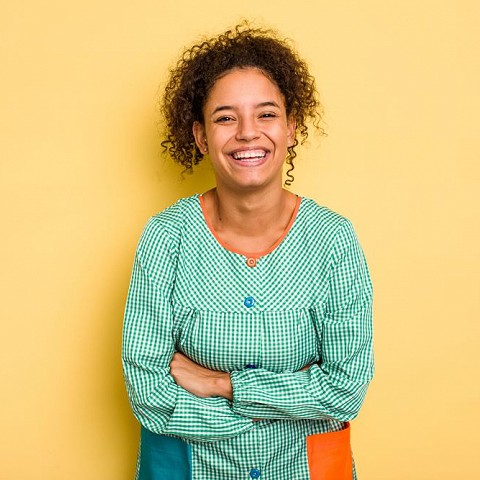
Teach English in Brunei
An English Language teaching project in partnership with the Ministry of Education for Brunei.

Primary and Secondary English teacher Brunei
Primary and Secondary English teachers are needed to serve in government schools in Brunei Darussalam. The goal is to improve Bruneian students' proficiency and attainment levels through high-impact classroom teaching and learning, specialised national support and intervention programmes, and the continual development of our own and local capacity throughout primary, secondary, and sixth-form colleges.
Remuneration
Benefits for public school English teacher
Brunei Multiple Locations
-
Competitive tax free salary
BND 42,000 - 66,000 (£24K - £38K) -
Attractive bonus
Bonus of 1/6th of salary on contract completion -
Housing provided
Generously sized living accommodation -
Education support
Support for up to two dependants' education at an international school at a heavily subsidised rate -
Career progression
Opportunities for continued professional development -
Enjoy a comfortable lifestyle
Low cost of living

About the role
- Collaborate with the ELTP and school teams, ensuring education and contract goals are met.
- Engage in high-impact teaching and learning to ensure that all students make appropriate progress.
- Maintain strong, professional, and productive working relationships with students, CfBT and Bruneian colleagues, the Ministry of Education, and their representatives.
- Ensure that professional performance requirements, such as knowledge and skills, professional involvement, and professional behaviour, are met.
- Develop a thorough understanding of the Brunei Teaching Standards (BTS) and consistently show them in the English language classroom at a high quality.
Requirements to teach in Brunei
-
University degree
-
Qualified Teacher Status / teacher accreditation (PGCE, Bed, DipT etc.)
-
Post-qualification classroom teaching experience of at least 3 years, with at least 1 year of experience teaching English / ESL
-
Be under 55 years old at the time of arrival in Brunei Darussalam

Need a TEFL certificate for your Brunei teaching application?
Get TEFL certified and stand out from the crowd. Boost your CV and earn more. Enroll today!


I found the induction program to be beneficial as an introduction to CfBT Education Services as an organisation and our role in Brunei. Teaching and living in Brunei is a unique experience and the induction program gave me some insight into life and teaching in Brunei and what to expect. What stood out for me the most was learning about specifically Bruneian customs, both within and outside of school life.
English language teachers needed in Brunei
Come and experience tropical Brunei as an English teacher. We are hiring now for government school teaching jobs in one of Brunei’s four districts.
Spotlight on CfBT
Brunei's CfBT is a part of the Education Development Trust (formerly CfBT Education Trust). The Trust is a global educational organisation with headquarters in the United Kingdom and regional offices in Brunei, the United Arab Emirates, and Kenya. The Trust's mission is to improve schools and school systems around the world by collaborating with governments, donor organisations, and school clusters on education reform projects.
For over 35 years, CfBT Education Services has collaborated with Brunei's Ministry of Education (MoE). Our goal is to improve Bruneian students' proficiency and attainment levels through high-impact classroom teaching and learning, specialised national support and intervention programmes, and the continual development of our own and local capacity throughout primary, secondary, and sixth-form colleges.
As a CfBT employee, you have the potential to contribute significantly to the project's success through your specialised teaching, participation in education programmes, and professional development possibilities.

FAQs
-
Brunei employs many foreign teachers who stay on in the country for numerous years. Teachers describe a welcoming work environment, well-funded schools, enthusiastic pupils, and great perks as reasons to stay year after year. Bruneians are recognised for their politeness and soft-spokenness.
-
In Brunei, teaching is a highly regarded profession, and teachers will discover that the high regard in which they are held makes life in the country very pleasant. Teachers can work in various state schools through well-established government programmes, or in international schools.
-
From January of the first year until December of the following year, an initial contract of employment is offered (i.e. two years). Even if a teacher starts later in the year, his or her contract will expire in December of the following year.
-
In terms of size, age, location, and condition of maintenance, schools around the country range from the ultra-modern to those in need of repair. Although most primary and secondary schools only have morning classes, one secondary school with nearly 2,000 students has two shifts: morning and afternoon. The majority of secondary schools, on the other hand, have roughly 1,000 students. Primary schools typically include 300 to 400 kids, while some may have as few as 100 or as many as 1,000. It's worth noting that CfBT may assign you to any school, on either the morning or afternoon shift. However, while making a designation, we always take your personal preferences into account.
A secondary school is led by a principal, who is almost always Bruneian, and two deputy principals. Below the level of senior instructors and department directors, there is a pretty conventional hierarchy. In primary schools, a Head Teacher (Guru Besar) is in charge, who is frequently assisted by a deputy, depending on the size of the school.
Secondary schools typically have 3-6 CfBT teachers, while some have fewer and others have more. There is frequently only one CfBT teacher in primary schools, who may also be the sole expatriate in the school.Primary teachers collaborate closely with Bruneian colleagues in the English department and communicate with class teachers about student growth and welfare.
The number of students in each class varies substantially from one school to the next. Smaller elementary schools may have as few as five pupils per class, whereas larger primary schools may have as many as thirty-five students per class, however this is uncommon. Between fifteen and twenty-four pupils are in the average class.
Class sizes in secondary schools range from 20 to 25 students, depending on the school and student level. -
In both your professional and personal life, you should dress conservatively in Brunei.
Male teachers should dress smartly at school, with long sleeved shirts and ties. They should not wear sandals, but rather respectable shoes with socks. A classic long-sleeved Malay style shirt with Mandarin collar is preferred by some teachers. It is not necessary to wear a tie with this outfit.
Female instructors must wear skirts to school and are not permitted to wear pants. The blouse's neckline should be high, and the sleeves should be below the elbow, preferably full length. Hemlines should be at least mid-calf length, if not full length.
-
The majority of the students are Malay Muslims, although there are also many Chinese students who are Bruneian citizens or permanent residents. Indigenous groups may be represented in more rural locations.
Bruneian pupils are on par with students from all over the world in terms of ability and motivation.
They have a wide range of abilities and demands, ranging from highly motivated to reluctant learners. Students' English skill varies widely, with some having little or no English and others having a strong grasp of the language.
Discipline issues do occur, as they do in any society, but they are usually the result of dissatisfaction and present themselves more in lethargy than confrontation. Most schools have processes in place to deal with such issues, albeit they may not always reflect those in your home country.
-
From January through November, the school year is in session.
The primary holiday occurs in December, at the completion of the school year. Each year, there are approximately 10/11 weeks of school vacation, which normally occur in March, June, September, and December, while some holidays are depending on the time of Ramadhan.
-
Monday through Thursday from 7.30 a.m. to 12.30 p.m., and Saturday, with teachers often arriving at school between 7 a.m. and 7.15 a.m. for morning assembly or form duty. On Friday and Sunday, there is a weekend break.
A typical teaching load consists of 14-18 curricular contact hours per week, or 28-36 thirty minute instruction periods. In general, teachers can teach up to six periods in a single day. In addition to their curricular load, all teachers usually have a block of two or three co-curricular / extra-curricular (CCA / ECA) periods once a week. Teachers must additionally work for an additional 6 hours per week during four 1.5-hour "stay-backs."
Clubs, extra lessons, meetings, professional development, planning, and preparation are all scheduled during this period. All teachers are required to be accessible for school-related activities until 4.30 p.m., though you may be free to depart earlier.
-
Temporary housing will be a home, hotel, or apartment upon arrival in Brunei, during which time instructors can look for permanent housing choices utilising a real estate agent or information provided by our Property & Facilities team.
Teachers can live in either a house or an apartment on a permanent basis. The majority of the housing is furnished, while some teachers prefer unfurnished housing so that they can decorate it themselves. Most windows will have curtains or shades, and the living room will have a couch set, a dining set, and beds and cabinets, while the kitchens will include a stove, oven, and refrigerator. The majority of the rooms feature air conditioning.
-
Foreign residents in Brunei are not entitled to free medical care. As a result, CfBT provides health insurance coverage for teachers and their families, with the Company paying the annual premiums. This includes both inpatient and outpatient treatment. In the case of outpatient claims, there is a BND $300 excess.
Pre-existing medical issues are not covered for a teacher or any dependent during the first year of employment with CfBT.
-
The induction period typically lasts two weeks and begins on the first day of employment. The education system, syllabi and schemes of work, assessment and reporting, Ministry of Education expectations, school visits, medical services and insurance, purchasing a car, housing options, customs and culture, company policies and procedures, and safeguarding training are all covered in both welfare and educational sessions. We also offer assistance with immigration and banking, as well as guidance on obtaining a local driver's licence.
Ready to Teach? Access Your Essential Lesson Plan Toolkit!
As an English teacher, you'll love having our 100 Lesson Plan Download at your fingertips. Priced at just £4.99, these ready-to-use plans are designed to help you effortlessly lead engaging classes, ensuring you're always prepared with the latest teaching methodologies.
£4.99 One Time Download
Want to teach in Brunei?
We've got you covered! Discover our teaching jobs in Brunei and launch an exciting career as a TEFL teacher. To apply for this role, fill out the below application form and an advisor will contact you with next steps.

Don't have TEFL?
Find out which TEFL course is right for you.






